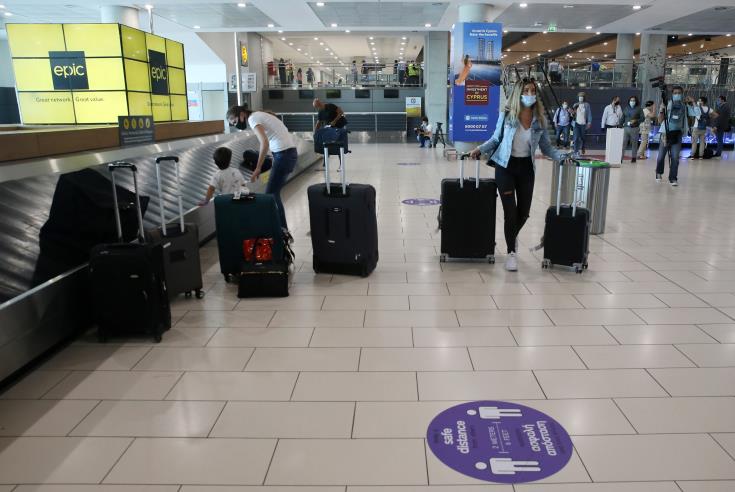Cypriots can start packing for a summer vacation in the 27-member EU without having to worry about quarantine, as the bloc agreed to electronic COVID-19 certificates.
Called “green certificates” by the European Commission, the pass is designed to allow restriction-free travel within the EU ahead of the busy summer holiday season.
EU legislators came to a compromise on Thursday to launch electronic COVID-19 certificates, boosting travel and tourism. The decision has also secured the backing of the European Commission.
“White smoke: we have a deal on the Commission’s proposal on the EU Digital Covid Certificate. We delivered on this new tool in record time to safeguard Free Movement for all citizens,” EU Justice Commissioner Didier Reynders tweeted.
“In a couple of weeks, we will have a unified European digital COVID certificate, which will be recognized all over the EU and will massively simplify cross-border travelling,” said Jeroen Lenaers, MEP from the centre-right European People’s Party bloc, the largest in the European Parliament, which had spearheaded the initiative.
“It is a major success that we have prevented contradictory national procedures and certificates,” he added.
Officials said the system should be up and running by July 1.
Under the provisional agreement, the certificate regulation would be in place for 12 months.
Brussels said the certificates would be issued in digital format and designed to be shown on smartphones or paper.
It guaranteed that “a very high level of data protection will be ensured.”
The documents will be given to EU residents who can prove they have been vaccinated and those who tested negative for the virus or can prove they recovered from COVID-19.
The European Parliament insisted that COVID-19 certificates should be enough to allow EU citizens to move freely in all member countries and that governments shouldn’t be allowed to impose extra restrictions on certificate-holders, such as quarantines and more tests.
As for the extra travel requirements that EU members might be tempted to introduce, the 27 nations agreed “they shall refrain” from imposing additional restrictions “unless they are necessary and proportionate to safeguard public health.”
The deal needs formal ratification from the European Parliament during its next plenary in June.
Vaccinated tourists
All vaccines authorized by the European Medicines Agency; currently, the ones made by Pfizer-BioNTech, Moderna, AstraZeneca and Johnson & Johnson will be automatically recognized.
National governments will be allowed to include other vaccines which haven’t received EU market authorization.
Cyprus has decided to recognize Russia’s SputnikV and the vaccine produced by Chinese Sinopharm.
A Deputy Ministry of Tourism source said the authority welcomed the development, noting that Cyprus has in practice already adopted the green pass, allowing for vaccinated tourists and people with tests to enter the island hassle-free.
“It is, however, good news for Cyprus, as apart from Cypriots being allowed to travel to EU destinations without restrictions, the EU has also added the category of people who recently recovered from the virus on the green pass,” said the source.
Under the current safe travel rules, Cyprus would not allow people with proof of recently recovering from the virus without any restrictions, as is the case with vaccinated people and those with a negative PCR test.
On 10 May, Cyprus has opened its doors to vaccinated tourists, regardless of their country of origin, to boost arrivals that plunged 84% last year.
Cyprus has opened up to EU member states, the European Economic Area such as Norway and Iceland, Switzerland, Armenia and other third countries Bahrain, Canada, Egypt, Israel, Kuwait, the UAE, the UK, Lebanon, the USA, Russia, and Canada.
Under the newly introduced colour-coded system, there is no mandatory quarantine for tourists entering Cyprus from the above countries.
Visitors from countries in the green zone can enter the island with no restrictions, while those from countries in orange and red have to take one and two PCR tests, respectively.
Arrivals from grey category countries such as India and Pakistan need special permission to enter and quarantine for two weeks.










